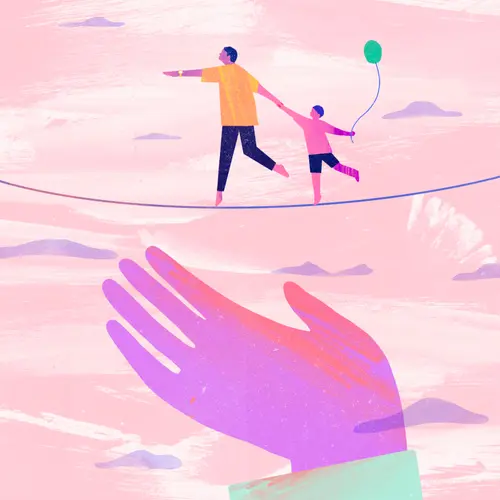Kids who are younger than most of the students in their grade may have a harder time paying attention, sitting still, or controlling their behavior. Those things happen to be symptoms of attention deficit hyperactivity disorder (ADHD), too.
ADHD is one of the most commonly diagnosed behavioral disorders in children in the U.S. But some experts think ADHD is overdiagnosed, especially in immature kids.
Experts say kids who are the youngest in their grade are more likely to be diagnosed with ADHD than their older classmates. One recent study found that boys born at the end of a grade cutoff (for example, born in December if the cutoff to begin school is Jan. 1) were 30% more likely to be diagnosed with ADHD. In the same study, girls at the end of a grade cutoff were 70% more likely to get an ADHD diagnosis.
Since ADHD is a neurological condition that causes brain differences that have nothing to do with age or birth date, some say immaturity is often mistaken for ADHD.
“There can be up to an entire year between the oldest and the youngest kids in a classroom. Developmentally, there may be a big gap between those groups,” says Anson Koshy, MD, assistant professor of pediatrics at the McGovern Medical School at the University of Texas Health Science Center at Houston.
“Younger kids may have a harder time paying attention or sitting still, especially compared to their older peers. And those age-appropriate behaviors may be mistaken for ADHD,” Koshy says.
If you’re not sure if your child has ADHD or is just immature, there are some things that can help you know.
Young Kids? Watch and Wait
ADHD can be diagnosed as early as age 4, but many experts, including Koshy, say early diagnosis may be a mistake for most very young kids.
“Toddlers and preschoolers are especially likely to have problems with impulse control and to have trouble focusing and staying on task,” Koshy says. But most kids grow out of it. Just 5% to 10% of preschoolers with ADHD-like symptoms are diagnosed with ADHD later in life.
Look Outside the Classroom
Teachers are often the first to suggest a child may have ADHD. That makes sense, since they see them for so much of the day. But research shows that teachers are more likely to suspect ADHD in the youngest kids in their classes.
“They may not realize immaturity or another issue, like a learning disability, may be the real reason a child has trouble paying attention during lessons,” Koshy says.
Plus, younger kids have shorter attention spans and need lots of chances to move. If your child is in a classroom where there are few breaks or little physical activity (like recess and physical education class), they may be more likely to be antsy or lose focus.
That’s why it’s important to look at your child’s behavior outside of school.
“I ask concerned parents: What’s your child’s morning routine look like? What about mealtime, playtime, and extracurricular activities?” Koshy says.
“If your son or daughter has trouble concentrating, sitting still, or showing self-control at home and on the weekends, that’s more of a sign that he or she may have ADHD.”
Don’t Rush Diagnosis
Since there aren't lab tests for ADHD, an expert (like a pediatrician, psychologist, neurologist, or psychiatrist) makes a diagnosis based your child’s symptoms and by looking at other things, like your child’s family history and health history.
“Your doctor or therapist will ask you about how your child behaves and will ask your child’s teacher -- and possibly other family members -- for input, too,” says Nicole Brown, MD, a pediatrician at the Children’s Hospital at Montefiore in New York City.
That process can take time. Your child’s doctor or therapist may want to evaluate your child for several months to see if their behavior changes as they get older or as their circumstances change (for example, during summer break).
When in doubt about a diagnosis, get a second opinion.
“Ask your child’s doctor: ‘Do you feel comfortable diagnosing ADHD? Do you have experience diagnosing it, and what methods do you use?’” Brown says. “If the answer is no, seek out help from someone with experience treating kids with ADHD.”
It's also important to consider other causes, such as learning disabilities. Psychoeducational testing is an objective way to compare your child’s educational strengths and weaknesses with other children of their own age. Ask your child's doctor or school about it.
Focus on Behavior
More than 90% of pediatricians prescribe medication to kids after diagnosing them with ADHD. Meds can be effective for kids who have ADHD. But they can cause serious side effects, like sleep problems and appetite issues. So it should only be used for kids who definitely have ADHD and who are at least elementary school-aged, Koshy says.
Behavioral therapy is often a better first step.
“Therapy is research-proven to help kids with ADHD as well as those who are simply immature,” Koshy says.
When looking for a therapist, “Look for someone who has worked with kids at a variety of ages and developmental stages and who has experience with ADHD,” Brown says. “That ups the odds that they can pull apart whether your child is having issues because of her age or because [they have] ADHD.”
Parent training -- that is, learning behavioral strategies to communicate with and help your child -- can also help you be clear and consistent with expectations and consequences.
“Often, parent training makes the biggest difference for kids,” Koshy says.
Consider taking a class or meeting with a therapist who specializes in ADHD and children’s behavioral issues. Ask your child’s doctor for a recommendation.
“While you’re waiting to figure out what’s going on with your child, there’s a lot you can do to help her do better and have an easier time at home and at school,” Brown says.

